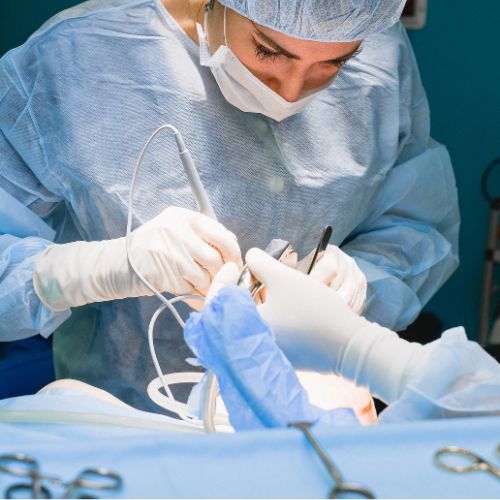What is Flap Surgery?
Flap surgery, also known as pocket reduction surgery or gingival flap surgery, is a common periodontal procedure used to treat moderate to severe gum disease (periodontitis). When deep pockets form between the teeth and gums due to bacterial infection, it can lead to bone loss and eventually tooth loss.
During flap surgery, the gums are gently lifted back to allow the dentist or periodontist to thoroughly clean the root surfaces and remove plaque, tartar, and infected tissue from deep pockets. In some cases, bone reshaping or grafting may be performed to reduce the depth of the pockets and encourage tissue regeneration. The gums are then sutured back into place.

Benefits of Flap Surgery
Reduces Pocket Depth
Eliminates deep pockets where bacteria can accumulate, making it easier to clean and maintain gums.
Halts Disease Progression
Removes infection and inflamed tissue, stopping the progression of gum disease and preventing bone loss.
Saves Teeth
By treating advanced gum disease, flap surgery helps preserve natural teeth that might otherwise be lost.


